Here are fascinating facts about octopus—the intelligent, eight-armed wonders of the ocean!
The octopus is one of the most fascinating and mysterious creatures in the animal kingdom. With its eight arms, extraordinary intelligence, and remarkable ability to camouflage, the octopus has captured the curiosity of scientists and nature lovers for centuries. Found in oceans all over the world, this soft-bodied marine animal belongs to the class Cephalopoda, which also includes squids, cuttlefish, and nautiluses.
Anatomy and Physical Characteristics
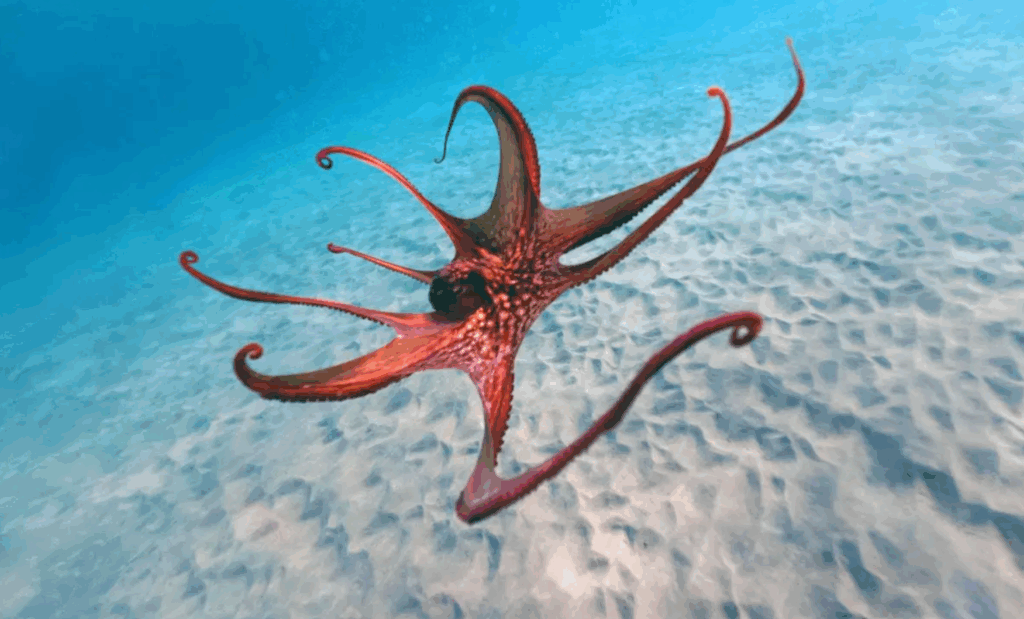
Octopuses are known for their eight flexible arms, which are lined with suction cups that help them grip surfaces, manipulate objects, and sense their environment. Each arm is incredibly dexterous and can function almost independently due to a large number of neurons located in them. In fact, about two-thirds of an octopus’s neurons are located in its arms, not its head.
They have three hearts—two pump blood to the gills, and one pumps it to the rest of the body. Interestingly, when an octopus swims, the heart that circulates blood to the body stops beating, which is why they prefer crawling over swimming, as it uses less energy.
Their blood is blue instead of red, due to a copper-rich protein called hemocyanin, which is more efficient than hemoglobin in transporting oxygen in cold and low-oxygen environments.
Camouflage and Defense Mechanisms
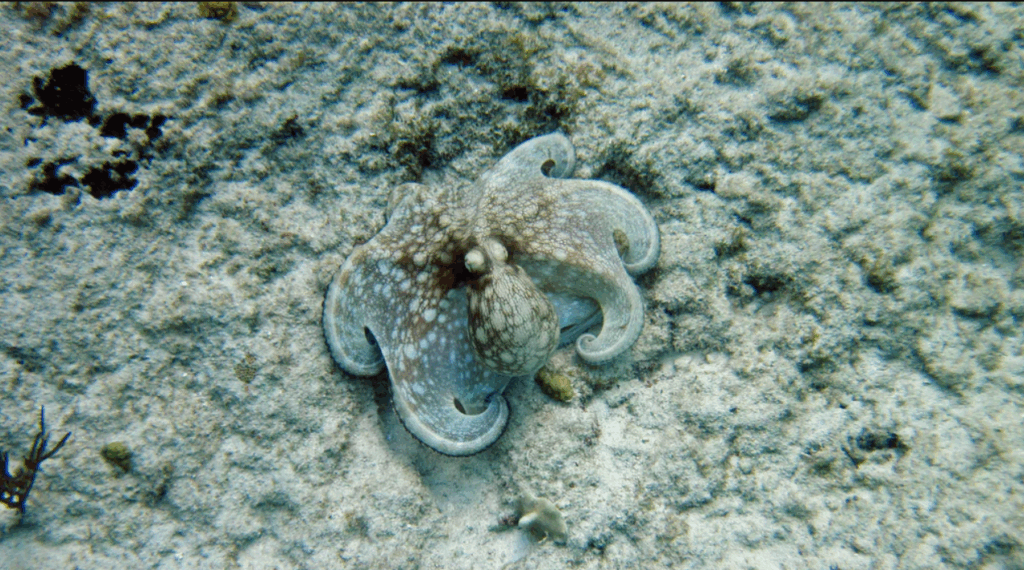
One of the most impressive abilities of an octopus is its camouflage. Octopuses can change the color and texture of their skin in an instant to blend into their surroundings, thanks to specialized skin cells called chromatophores, leucophores, and iridophores. This helps them avoid predators and sneak up on prey.
They also use other defense mechanisms such as:
- Ink release: When threatened, an octopus can eject a cloud of dark ink to obscure a predator’s vision and confuse its sense of smell.
- Jet propulsion: By rapidly expelling water through a siphon, octopuses can make a quick escape.
- Autotomy: Some species can lose an arm to escape a predator’s grasp—an arm that can later regenerate.
Diet and Hunting Behavior

Octopuses are carnivorous and primarily feed on crabs, mollusks, shrimp, and small fish. They are ambush predators, often using camouflage to hide and strike quickly when prey approaches. With their sharp beak-like mouthparts, they can break through the hard shells of crabs or clams.
Some species, like the mimic octopus, use deceptive behaviors by imitating the appearance and movement of other marine animals, such as lionfish or flatfish, to confuse both predators and prey.
Incredible Intelligence
Octopuses are considered the most intelligent invertebrates on Earth. They possess excellent memory, problem-solving skills, and the ability to learn by observation. In laboratory experiments, they have been seen:
- Opening jars to retrieve food
- Navigating mazes
- Using coconut shells or rocks as tools
- Escaping from aquariums and returning to the sea
Their brain-to-body ratio is among the highest in invertebrates. This high level of intelligence, combined with their curious and solitary nature, makes them truly unique among sea creatures.
Reproduction and Lifespan
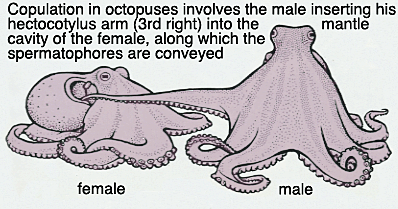
The reproduction process of the octopus is fascinating yet tragic. The male octopus uses a specialized arm called a hectocotylus to transfer sperm into the female’s mantle cavity. After mating, the male usually dies within a few months.
The female lays thousands of eggs in a den and guards them fiercely without eating. She tends to them for several weeks or even months, constantly cleaning and aerating them. After the eggs hatch, the mother dies—a process known as semelparity, or “one-time reproduction.”
Most octopuses have short lifespans, typically living from one to five years, depending on the species.
Different Species of Octopus
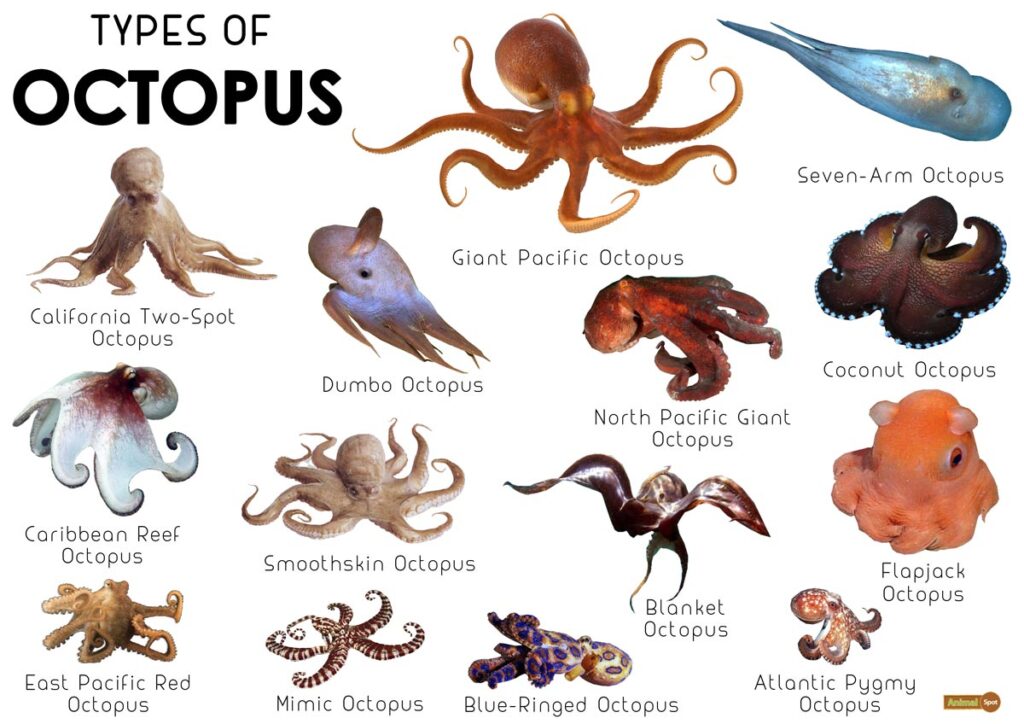
There are around 300 known species of octopus, and they inhabit every ocean, from shallow coral reefs to deep-sea environments.
Some notable species include:
- Common octopus (Octopus vulgaris): Found in tropical and temperate seas; well-known for its intelligence.
- Blue-ringed octopus: Small but deadly, its venom can be fatal to humans.
- Giant Pacific octopus: One of the largest species, with arm spans over 14 feet.
- Mimic octopus: Known for its ability to imitate other sea creatures.
Each species has evolved different survival strategies suited to its habitat, from burrowing in sand to hiding in shipwrecks.
Octopuses in Culture and Mythology
Throughout history, octopuses have appeared in folklore and art. In many cultures, they symbolize mystery, flexibility, intelligence, and transformation. In ancient myths, creatures resembling octopuses—like the Norse “Kraken”—were often depicted as sea monsters capable of sinking ships.
In modern pop culture, octopuses appear in books, films, and cartoons, often portrayed as intelligent and sometimes menacing creatures, adding to their mysterious aura.
Conservation and Threats
While many species of octopus are not currently endangered, climate change, pollution, and overfishing pose significant threats. Rising ocean temperatures and habitat destruction can affect their populations and food sources.
Fortunately, octopuses are highly adaptable. Their ability to change behaviors and environments may help them survive in changing conditions better than many other marine animals.















































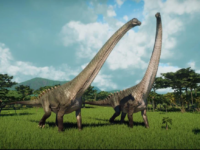




















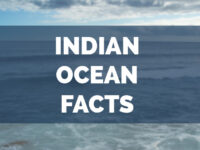
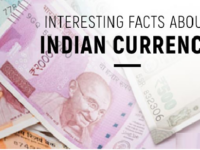


















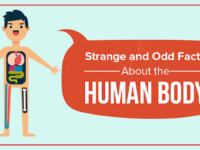














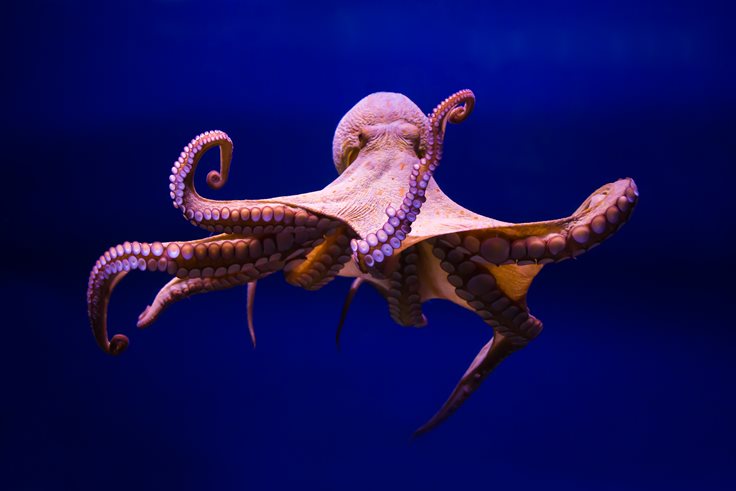
0 Comments